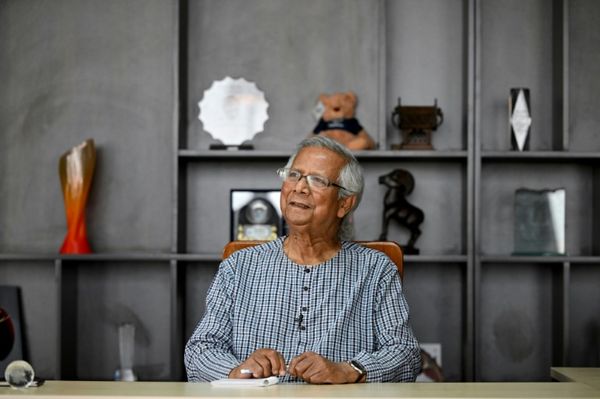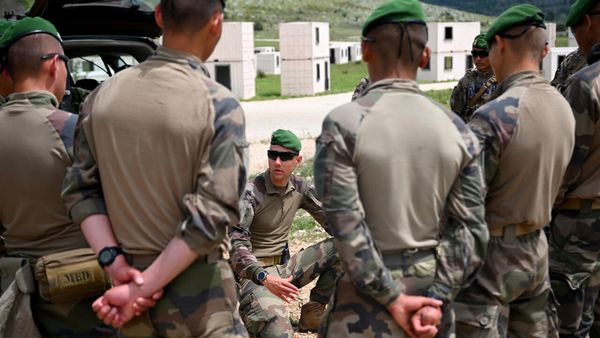
Oumar Dieme, a former rifleman from Senegal who fought alongside the French during its colonial wars, will help carry the Olympic torch as part of the opening of this summer's Paris Games. The 91-year-old says it's a miracle he was picked.
Neither star nor high-level athlete, Dieme's claim to fame is being a Senegalese tirailleur – a corps of infantrymen from former French colonies who fought for France, notably during the two world wars.
The array of medals on his traditional boubou speaks of his service in French Indochina and later Algeria.
He remembers those who never returned to their homeland.
"Many colleagues stayed behind. Others came back mutilated [or] are no more," he told France's AFP news agency.
Some 20 men from his village of Badiana in the southern Casamance region served in the Senegalese tirailleurs corps until it was disbanded in the 1960s.
He said that he was one of the "lucky" ones.
"I'm the only survivor. It was a miracle that I was chosen."

Ready for a challenge
Dieme is among 11,000 torchbearers who are relaying the Olympic flame through France.
But he's one of just 21 handpicked to carry it through the department of Seine-Saint-Denis, just north of Paris, on 25 July – the eve of the Games' opening ceremony.
Dieme has strong links to the area, having lived in a migrant hostel there for years before permanently resettling in Senegal last April.
"The choice of Oumar Dieme contributes to the essential work of remembrance, because the Senegalese riflemen have been forgotten for too long in our collective memory," Stephane Troussel, president of the Seine-Saint-Denis department, told AFP.
Though Dieme had never heard of the Olympic flame before, he took up the challenge.
"Given my age, I would like to be accompanied by my son," he said.
Many battles won
Dieme joined the Tirailleurs Senegalais corps in March 1953, when he was around 20 years old.
He fought in Indochina, and then in the war in Algeria, where he first learned of Senegal's independence from France in 1960.
Back home, he re-enlisted in the Senegalese army, then worked as a security guard and as a bank courier until 1988.
Once retired, he returned to the working-class town of Bondy, northeast of Paris, where he and other former riflemen undertook the long battle of getting recognition for services to France and equal pension rights.
In 2023, the government agreed to allow the remaining tirailleurs to continue receiving the minimum pension without having to spend half the year in France.
"I’m happy, even if it’s come late, it’s better than nothing. Now we have recognition," he told RFI during the inauguration of Place des Tirailleurs-Senegalais in Paris in March last year.

Testimony to France's diversity
Since moving back to Senegal last year, Dieme splits his time between his village and the capital Dakar, where one of his two wives and the mother of many of his children lives.
"I'm very happy to be with my family. [In France] I was confined to a 17-square-metre room. I didn't see anyone. In this village, everyone loves me," he said.
Dieme's opportunity to carry the Olympic torch owes much to the efforts of Aissata Seck, a local councillor in Bondy and president of a group commemorating the tirailleurs.
"It's a beautiful symbol, even more so today with the extremely difficult current situation and the trivialisation of racism on social media. It shows the richness and diversity of France," she said.

In an interview with RFI earlier this year Dieme spoke of his pride in returning to his old neighbourhood as a torchbearer, even if he'll have to take it steady.
"I was very athletic while in the army. If God keeps us alive until that date and in good health, I will be [at the ceremony].
"But given our age, our days are numbered."
(with AFP)










